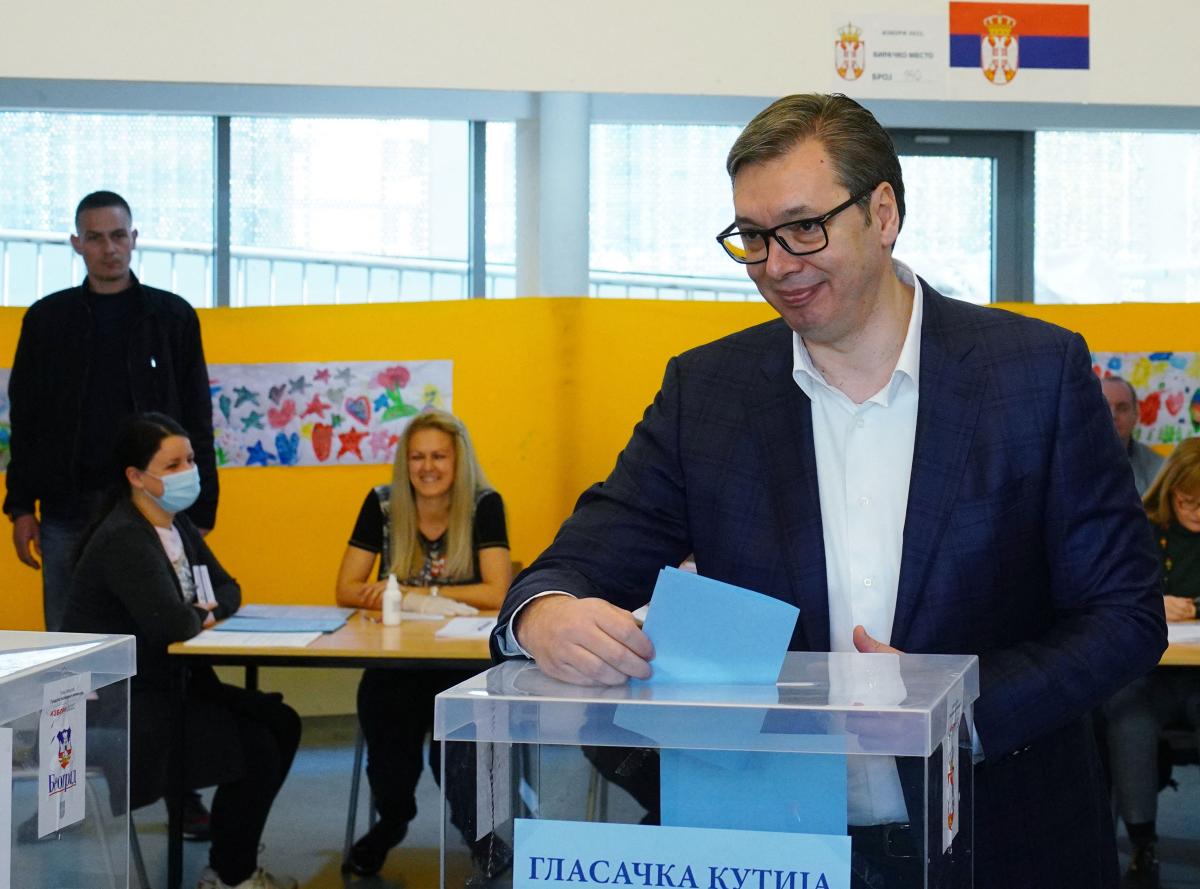Presidential and parliamentary elections started at 7 am in Serbia. Local elections are also taking place in Belgrade and 13 other municipalities at the same time.
Serbia’s super-election day was initially quiet on Sunday. According to the NGO Free Elections and Democracy (CESID), voter turnout in presidential, parliamentary and local elections in Belgrade and 13 other municipalities was 14.7 percent as of 11 am, slightly higher than in parliamentary elections two years ago. years old. At that time, however, the election was boycotted by the opposition. President Aleksandar Vucic was confident of victory by voting.
At 10:00 am, the state election commission recorded a turnout of just under ten percent. According to CESID, in the early hours of the morning there were a series of violations of the electoral process, which are common in Serbia. Voting was temporarily suspended in two polling stations after attempts to photograph ballot papers. In eight polling stations there were collective votes for the whole family. Another problem: dead files in the electoral register.
Long line at the border
Belgrade media reported in the morning about a motorcade nearly two kilometers long on the Jarinje border in northern Kosovo with Serbia. For the first time, Kosovo Serbs have to go to Serbia to vote and cannot vote on the spot. In northern Mitrovica, which is inhabited by Serbs, a bus transport was organized to polling stations in Raska, in southwestern Serbia, Internet portal “Kossev” reported.
Serbian President Aleksandar Vucic and his Serbian Progressive Party (SNS), which has been in power for ten years, are hoping for another convincing election victory today. Vucic recently even talked about hoping to get 60% of the vote for his second term today.
“We expect a great victory,” Vucic said Sunday after voting. “That’s what we’ve been working on for the last four or five years and we believe that we will continue with the great effort and advancement of this country.”
First results expected at 10pm
In the future, the SNS will likely not be represented in parliament with 188 of the 250 seats. The opposition, which boycotted the elections two years ago, has now decided to participate in the elections this time around. At least two of the various groups – “united for Serbia’s victory” around the Freedom and Justice Party (SSP) of former Belgrade mayor Dragan Djilas, and the “We Must” group (Moramo), a coalition of several environmental groups and small center-left parties – seemed to have no problem beforehand in releasing the three percent threshold for entry into parliament, thus taking seats from the SNS.
Eight people are running for president and 19 parties and alliances are running for parliamentary seats. Vucic’s main adversary is former military chief Zdravko Ponos, who is supported by the pro-European opposition. “I look forward to a bright future,” the opposition candidate said on election day. “The elections are the right way to change the situation. I hope that the citizens of Serbia seize this opportunity today.” The opposition also has high hopes for a change of power in Belgrade’s municipal elections, where the city’s administration is in the hands of the SNS.
The first unofficial election results are expected around 10pm, the first official results are expected to come out on Monday night.

